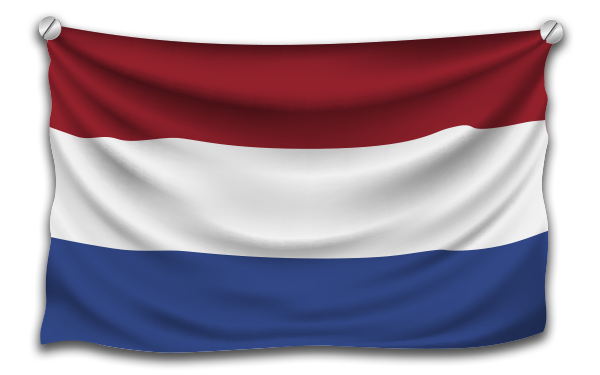ICES High School Study Abroad
Netherlands
Program Schedule
Year:
August – July
January – October
Price: $16,000 (flights and insurance included)
Semester:
August – December
January – July
Price: $15,500 (flights and insurance included)
2 and 3 month program:
Various months
Price: $12,500 (flights and insurance included)
Prices are subject to change
LEARN MORE ABOUT STUDY ABROAD
SUBMIT INTEREST IN STUDY ABROAD

High School Study Abroad Netherlands
Known for its windmills, clogs, tulips, bicycles and social tolerance, the Netherlands is a friendly place with plenty to offer the exchange student. It is a flat, densely populated and geographically low-lying country, its name meaning just that – “low countries” or “low lands.” About 20% of its area and 21% of its population is located below sea level, and 50% of its land lies less than one meter above sea level.
Netherlands COUNTRY INFORMATION
Area: about 16,158 square miles
Population: approximately 16 million
Capital: Amsterdam
Language: Dutch
National Holiday: April 27 (King’s Day)
The Netherlands in its entirety is often referred to as Holland, although North and South Holland are actually only two of its twelve provinces. The word Dutch is used to refer to the people, the language, and anything pertaining to the Netherlands. The Netherlands used to have many colonies and even though Columbus “discovered” America, the Dutch made the first settlements in the new country. New York was first named New Amsterdam and many places in New York still refer to the Dutch heritage.
The Dutch are world-travelers, generally speaking several languages and known worldwide for their keen approach to doing business. The Netherlands is also famous for its art, painters (such as Rembrandt and Vermeer) and architecture. The Dutch are known for their talents in sports, namely soccer and iceskating. There are many Dutch soccer players who play in the English, Spanish and Italian leagues, and the national team is amongst the best in the world. The weather is quite rainy in the Netherlands. Winters are generally mild, with temperatures slightly above zero degrees Celsius, and summers quite cool with temperatures around 20 degrees.
School Life
In the Netherlands there are various types of secondary schools. The options are VMBO (prevocational secondary education), HAVO (senior general secondary education) and VWO (preuniversity education). All three types of secondary education are for children aged 12 and over, and they begin with a period of ‘basic secondary education’. This usually lasts three years and consists of a broad core curriculum for all pupils. The three types differ widely from each other in terms of the length of the course and the level of education. Exchange students are most often placed in the HAVO or VWO schools. The HAVO schools are 5 years in length and students are placed in the 4th year. The VWO schools are 6 years in length and the students are placed in the 5th year. It is the school guidance counselor who will decides which classes an exchange student can take as well as which grade they will attend. Exchange students should be prepared to invest time in their homework. The level of education at the VWO is usually higher than what a student is used to at home. This, combined with studying in the Dutch language, can make it challenging but very rewarding. Teachers do expect the students to make an effort to learn Dutch and will not translate course material into English. In the HAVO and VWO, typical classes are Dutch, English, another foreign language (either French or German), math, economics, physics, history, biology, chemistry, geography, physical education, art and independent study hours. The school week lasts from Monday through Friday, and typically consists of 30 to 35 lessons of 50 minutes each. The length of each school day may vary, depending on the schedule. It is not expected that exchange students can fully participate in the classes in the beginning, however, it is expected that students attend the classes. Not only does it help the students to get to know the others in the class, it also puts them in an environment where Dutch is the only language spoken.
Host Family
Life Families in the Netherlands are typically small, with an average of two children per household. Many women work, (mainly part-time) especially once the children have reached school age. This means that Dutch youngsters learn to be independent at a young age. With about 16 million inhabitants living on a small piece of land on the coast of the North Sea, space is limited and has to be divided between towns and villages, industry, agriculture and nature. In most towns and villages, families live in houses that are connected to each other. They usually have a small garden. In the bigger towns and cities many people live in apartment complexes. Meals are an important time for families. Breakfast is usually light and quick with bread, cheese, cold meat and jam. Some families tend to have longer breakfasts on the weekends or they have brunch. For lunch, the students bring their own sandwiches to school. Dinner gathers the whole family, and it is a time to share the feelings and happenings of the day. Usually dinner takes place between 6–7 pm. The entire family helps out with cooking, setting the table and clearing up afterwards. Presence at the table is a must, even if someone is not hungry, as it is a time of mutual sharing. Cooked potatoes are almost always served at dinner, next to vegetables and meats. Salads are also very popular.
The Dutch are very open to foreign foods as well, and they eat a variety of foods (Chinese, Italian, Mexican, French etc). Students will quickly see that the main mode of transportation is by bike. Students will receive a free Travel Active bike upon arrival in the host family. The public transportation system is very well developed, which makes it possible for students to visit other nearby places. Teenagers seldom go out alone. They usually gather in small groups before going out. It is not uncommon to meet at someone’s house before going to the school dance, discotheque, café or other event. Usually host parents request that students are at home by the set curfew. The curfew will depend on the confidence the parents have in their children and exchange students; it might be stricter in the beginning and possibly adjusted as time goes on. However, host parents would like to be informed about where, when and with whom. Students are strongly urged to become involved in extra-curricular activities outside of school, such as sports, clubs, social events, art, music, or drama, as long as these activities do not interfere with their academic progress. There are many clubs a student can join and schools also organize student trips to other countries.
Program Requirements
Students must be between the ages of 15-18.
Students must complete a mandatory online Dutch language program before coming on program. The online program cost is included in the program fees.
Visas
Students in short-term programs (90 days or less) are not required to apply for a student visa. Students in programs longer than 90 days must apply for a student visa through ICES prior to arrival. The cost of this procedure is around 600 euros and is subject to change by the Dutch government.
About ICES
We are a nonprofit organization committed to international, educational student exchange. Our goal is to promote cultural awareness and international understanding by offering quality, educational and cultural programs for students, host families and schools. Our staff is dedicated to creating a positive exchange experience for all program participants.
Additional Study Abroad Program Information
Study Abroad Program Process Guide
Study Abroad Program FAQs
Other Study Abroad Destinations
Testimonials by American Students
Have you finished your initial research about the Study Abroad Program in the Netherlands? Are you ready to take the next step?
Please go ahead and submit your program interest to the ICES office by using the ‘submit’ button below.
To learn more about the Study Abroad Program you may click on any of the links to the left.
SUBMIT YOUR INTEREST IN STUDY ABROAD

